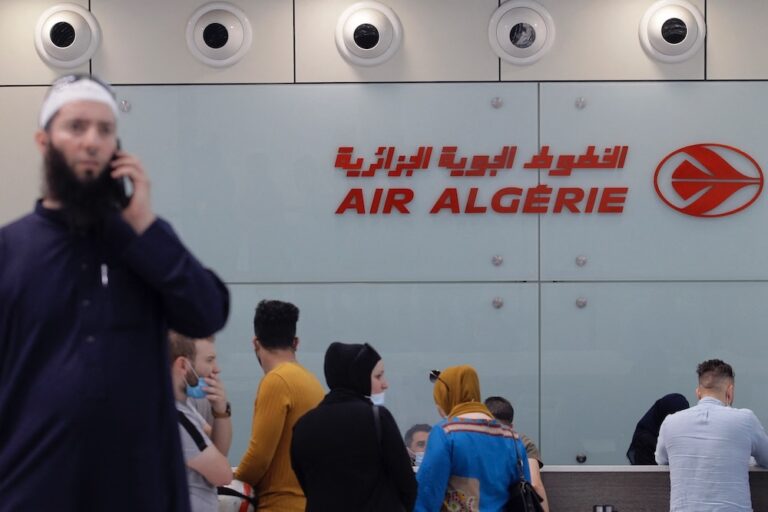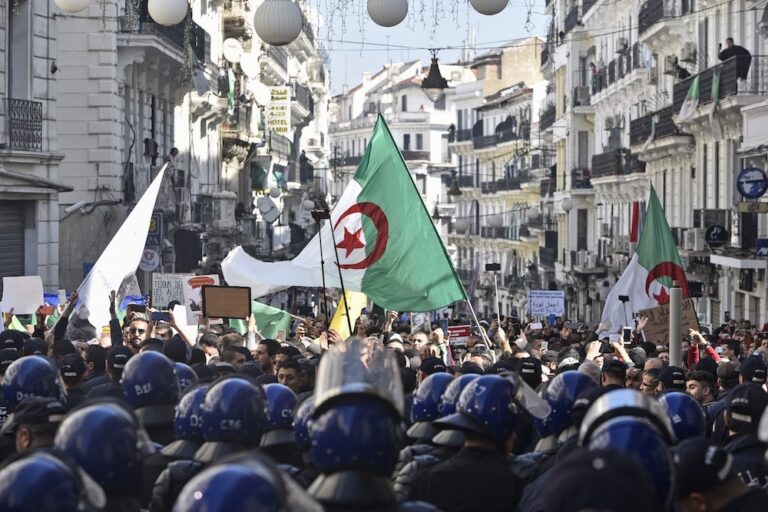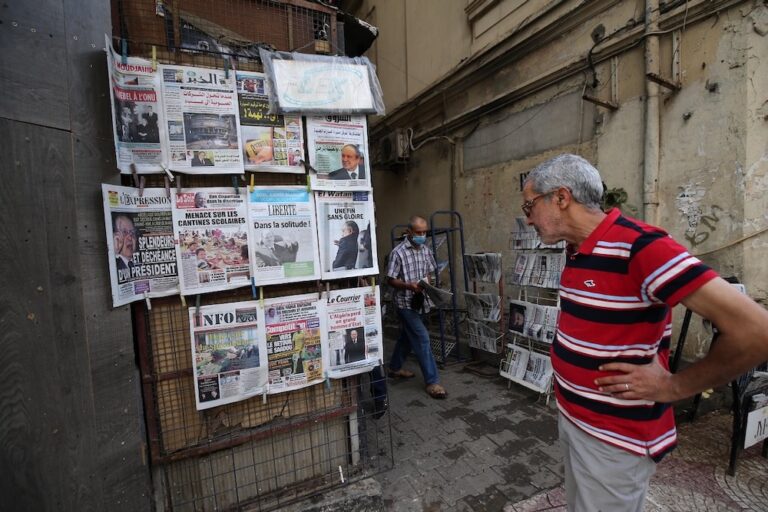Police in Algiers beat teachers demonstrating for greater job security on March 21 and 22, 2016, injuring at least two. Police also arrested dozens of protesters and held them for several hours, then released them without charge.
This statement was originally published on hrw.org on 31 March 2016.
Police in Algiers beat teachers demonstrating for greater job security on March 21 and 22, 2016, injuring at least two. Police also arrested dozens of protesters and held them for several hours, then released them without charge.
The teachers, who are hired on temporary contracts rather than being given permanent posts, took to the streets after a call by the National Coordination of Contractual Teachers, an independent, nonunion group, for a sit-in to demand integration of teachers into the civil service to provide greater job security. A ban on public demonstrations has been in force in the capital since 2001.
“There is no justification for continuing to deny Algerians the right to peacefully assemble in their capital,” said Sarah Leah Whitson, Middle East and North Africa director. “Protesters should not have to fear the baton just for trying to express their views in public squares.”
Human Rights Watch spoke by phone with Bachir Saïdi, the spokesman for National Coordination, as well as four teachers who said that the police either beat or arrested them.
Saïdi said that the National Coordination called on its Facebook page for a sit-in in front of the Education Ministry on March 21. He said that at around 8:30 that morning, the teachers tried to reach the ministry’s headquarters in the Al-Mouradia administrative quarter of Algiers but found that police had sealed off their access. The teachers then decided to move their sit-in to the plaza in front of Algiers’ Central Post Office.
A.G., who asked not to be named, has been a contract teacher for three years in a high school in Algiers. She said that about 100 teachers gathered in the plaza in front of the post office, without obstructing the traffic or pedestrians. She said that they were able to maintain the sit-in for about an hour, raising banners and chanting slogans. Then, a large contingent of police surrounded them and started pushing them toward the street, where police vans and buses were stationed. Those who resisted were beaten.
She said that about 10 policemen surrounded her and several kicked her legs. When she continued to resist while the police were forcing her into one of the buses, the policemen shoved her violently inside, injuring her arm. She said that she and several other teachers managed to get off the bus and escape when it stopped en route. The next day, a hospital doctor examined her and noted a “torn shoulder muscle” in the medical report, which Human Rights Watch reviewed.
Fella Djellal, a teacher of French at a high school in Boumerdès, gave a similar account. She said that police started pushing her and other protesters toward a corner and into police vans and buses. She said she fainted after two policeman kicked her on the legs. When she regained consciousness, she found herself on the ground in front of the Kharouba railway station. She said she was in pain and could not walk, so some colleagues called for an ambulance, which took her to El-Mustapha Hospital. The doctor there gave her a report saying she had a sprained ankle that required 30 days of rest.
Other protesters, who spent the night of March 21 in the downtown Algiers offices of the National Autonomous Union of Public Administration Staff (SNAPAP), an independent union, said that police arrested them the following day as they left the building. Fahem Aïssat, a high school teacher in Bejaïa, said:
We were around 30 teachers from various cities. We decided to spend the night in Algiers and to leave the following day. From the windows, at around 5 a.m., we saw that police vans and policemen had arrived in front of the SNAPAP. At 7:30, 15 of us decided to leave. As soon as we walked out of the gate, around 10 policemen, six in plain clothes and four in uniform, stopped us. They asked for our IDs and where we were going. We told them we are going to the railway station to leave Algiers. One of them said that they had an order to arrest us.
Aïssat said that the police took them to the Mohammadia police station and held them until 5 p.m. He said that the police did not tell them the reasons for their arrest, and released them without charge.
Algeria’s constitution guarantees the right to freedom of assembly. Amendments, entered into force on March 7, 2016, include a provision that, “The right to peaceful assembly is guaranteed within the framework of the law, which sets forth how it is to be exercised” (article 49).
In practice and through a combination of laws, however, Algerian authorities routinely violate that right. The penal code punishes organizing or participating in an unauthorized demonstration in a public space with up to one year in prison (article 98). Authorities in Algiers, the capital, banned public demonstrations indefinitely in 2001, when the country was under a state of emergency. Authorities did not rescind the ban when they lifted the state of emergency in 2011.
As a part to the International Covenant on Civil and Political Rights, Algerian authorities are required to respect the right of peaceful assembly, protected by article 21, and can only impose proportionate limitations on demonstrations that are non-discriminatory and necessary “in the interests of national security or public safety, public order, the protection of public health or morals or the protection of the rights and freedoms of others.”
There is no justification for continuing to deny Algerians the right to peacefully assemble in their capital.Sarah Leah Whitson – Human Rights Watch Middle East and North Africa director


